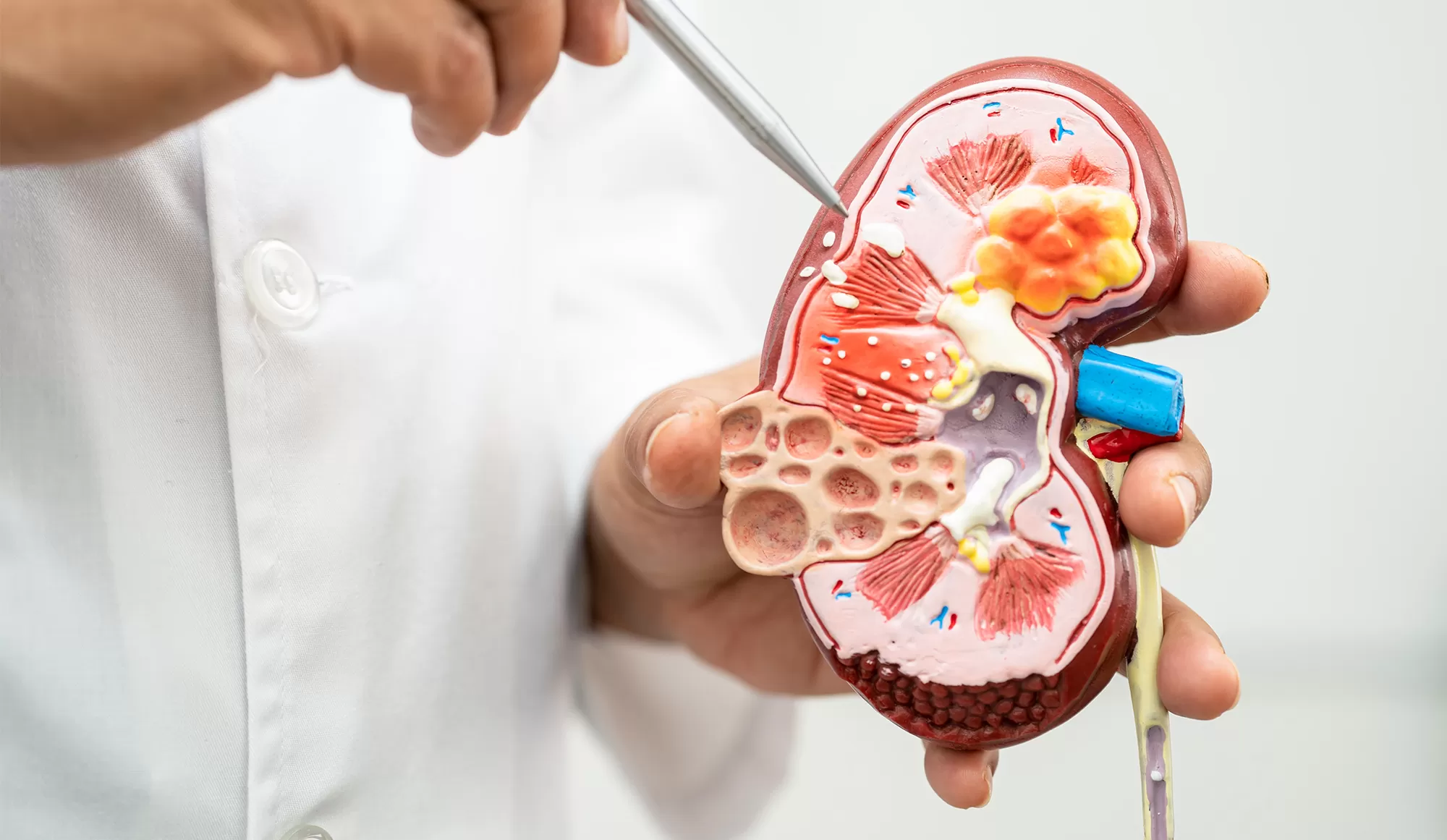
Kidney stones can affect millions of people worldwide. If you are dealing with it or looking to treat kidney stones in Port St. Lucie, Florida, you are in the right place. Dr. Mourad Abouelleil, a leading urologist, offers advanced, compassionate, and personalized care to relieve you from kidney stones and keep you from forming stones in the future.
Kidney stones are hard minerals and salts that deposit inside the kidneys and usually cause severe pain as they pass through the urinary tract. They differ in size and type; therefore, the signs may vary from mild to intense. Common symptoms include acute pain in the back, side, or abdomen, blood in the urine, nausea, and frequent urination.
Different types of kidney stones exist, including:
Calcium Stones: The most common form of stones is calcium oxalate or phosphate.
Uric Acid Stones: Uric Acid Stones can occur when urine becomes too acidic.
Struvite Stones: Formed from urinary tract infections (UTIs) and are associated with fast-growing stones.
Cystine Stones: This is the rarest type of stone because it is formed in individuals having cystinuria, a hereditary defect.
While kidney stones affect everyone, there are specific things that make you more likely to have them:
Dehydration: The less water you drink, the higher the risk of getting kidney stones.
Diet: A sodium-rich, protein-rich, or oxalate-rich diet pushes people to form stones.
Obesity: Heaviness changes the body’s chemicals in the urine and thus causes stones to form.
Family History: You may also have a higher chance of developing them if it runs in the family.
Chronic illnesses: Diseases such as diabetes, gout, and other chronic inflammation increase the risk of stones.
Medications: Medications that may contribute to the formation of kidney stones include.
The most challenging symptom of having kidney stones is usually pain. Specific symptoms depend on the size and position of the rocks. The common signs include:
Seek advice and medical care at such a time from experts such as Dr. Abouelleil on how to go about it.
Kidney stones can be treated by size, type, and location. Fortunately, Dr. Abouelleil has several treatment options for you:
1. Conservative treatment
If the kidney stone is small, surgery may not be needed. Dr. Abouelleil may advise the following:
Pain management: Medication, either over the counter or prescription, is available for pain relief.
Drinking a lot of fluids: The idea is to flush out tiny stones.
2. Extracorporeal Shock Wave Lithotripsy (ESWL)
In the case of larger stones, Dr. Abouelleil may offer treatment using an external method called ESWL. ESWL uses shock waves to crush the rocks into smaller fragments, which can then be passed through with urine. This is performed as an outpatient procedure with no need for hospital admission.
3. Ureteroscopy
If the stone is lodged in the ureter, the tube that connects the kidney to the bladder, Dr. Abouelleil may proceed with ureteroscopy. A thin tube with a camera is inserted into the urinary tract to visualize and retrieve the stone. The stone can be fragmented into smaller pieces to facilitate removal if needed.
4. Percutaneous Nephrolithotomy (PCNL)
If the renal stone is large, Dr. Abouelleil may advise PCNL. This is a minimally invasive surgery performed directly to remove the stone from the kidney through a small incision in the back. It is usually done when other methods have not worked.
5. Surgery
Open surgery is done to remove a kidney stone. Dr. Abouelleil will only recommend this if all other options are inappropriate.
Once a stone has formed in the kidney, the chances for its reformation into a stone are very high. Therefore, Dr. Abouelleil might suggest consideration of the following:
Hydration: Keeping the body well hydrated is useful in stone prevention.
Dietary modification: Reduction in the intake of salt, sugar, and high-oxalate foods and following an overall healthy diet.
Medications: Prevention of stone formation would be aided by taking certain medications.
Follow-up appointments: Regular visits with Dr. Abouelleil to monitor kidney health.
Dr. Mourad Abouelleil is an experienced urologist who specializes in kidney stone treatment. He implements the latest and most advanced techniques to offer the best care possible for different kidney stones. Dr. Abouelleil and his team will provide you with the highest care in its management, removal, and prevention.
Dr. Abouelleil is committed to providing every patient with compassionate and personal care—this level of a strong commitment to rebuild your health and get on with life immediately.
Answer. Yes, passing a kidney stone is painful, depending on the size of the stone and whether it is stuck in the urinary tract. The pain is usually described as intense and comes in waves, typically radiating through the back and abdomen.
Answer. Post-treatment, mild discomfort is also possible, blood in the urine, and frequent urination. These side effects usually go away quickly but must be observed significantly if they worsen.
Answer. Follow-up care is essential to determine whether the stones have been adequately treated and to look for future occurrences. Dr. Abouelleil will continue to support you and help with lifestyle changes to reduce the chance of stones forming in the future.
Answer. Depending on the method of treatment, recovery may differ. In the case of non-invasive procedures like ESWL, most patients can return to their normal activities in a few days. Invasive procedures such as ureteroscopy or PCNL usually require a few days to weeks to recover.
Error: Contact form not found.